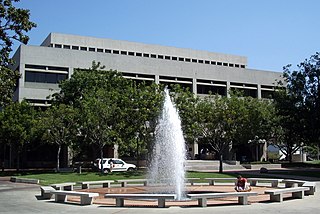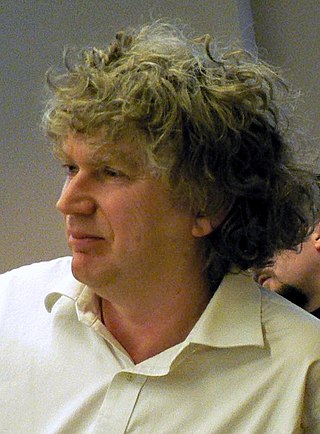Related Research Articles
The Sokal affair, also called the Sokal hoax, was a demonstrative scholarly hoax performed by Alan Sokal, a physics professor at New York University and University College London. In 1996, Sokal submitted an article to Social Text, an academic journal of cultural studies. The submission was an experiment to test the journal's intellectual rigor, specifically to investigate whether "a leading North American journal of cultural studies—whose editorial collective includes such luminaries as Fredric Jameson and Andrew Ross—[would] publish an article liberally salted with nonsense if (a) it sounded good and (b) it flattered the editors' ideological preconceptions."

Social constructionism is a term used in sociology, social ontology, and communication theory. The term can serve somewhat different functions in each field; however, the foundation of this theoretical framework suggests various facets of social reality—such as concepts, beliefs, norms, and values—are formed through continuous interactions and negotiations among society's members, rather than empirical observation of physical reality. The theory of social constructionism posits that much of what individuals perceive as 'reality' is actually the outcome of a dynamic process of construction influenced by social conventions and structures.

Alan David Sokal is an American professor of mathematics at University College London and professor emeritus of physics at New York University. He works in statistical mechanics and combinatorics.
The year 1996 in science and technology involved many significant events, listed below.

Fashionable Nonsense: Postmodern Intellectuals' Abuse of Science, first published in French in 1997 as Impostures intellectuelles, is a book by physicists Alan Sokal and Jean Bricmont. As part of the so-called science wars, Sokal and Bricmont criticize postmodernism in academia for the misuse of scientific and mathematical concepts in postmodern writing.
Sergei Petrovich Novikov was a Soviet and Russian mathematician, noted for work in both algebraic topology and soliton theory. He became the first Soviet mathematician to receive the Fields Medal in 1970.

In philosophy, the terms obscurantism and obscurationism identify and describe the anti-intellectual practices of deliberately presenting information in an abstruse and imprecise manner that limits further inquiry and understanding of a subject. The two historical and intellectual denotations of obscurantism are: (1) the deliberate restriction of knowledge — opposition to the dissemination of knowledge; and (2) deliberate obscurity — a recondite style of writing characterized by deliberate vagueness.

The sociology of scientific knowledge (SSK) is the study of science as a social activity, especially dealing with "the social conditions and effects of science, and with the social structures and processes of scientific activity." The sociology of scientific ignorance (SSI) is complementary to the sociology of scientific knowledge. For comparison, the sociology of knowledge studies the impact of human knowledge and the prevailing ideas on societies and relations between knowledge and the social context within which it arises.
The science wars were a series of scholarly and public discussions in the 1990s over the social place of science in making authoritative claims about the world. Encyclopedia.com, citing the Encyclopedia of Science and Religion, describes the science wars as the
David Bloor is a British sociologist. He is a professor in, and a former director of, the Science Studies Unit at the University of Edinburgh. He is a key figure in the Edinburgh school and played a major role in the development of the field of science and technology studies. He is best known for advocating the strong programme in the sociology of scientific knowledge, most notably in his book Knowledge and Social Imagery.

Social construction of technology (SCOT) is a theory within the field of science and technology studies. Advocates of SCOT—that is, social constructivists—argue that technology does not determine human action, but that rather, human action shapes technology. They also argue that the ways a technology is used cannot be understood without understanding how that technology is embedded in its social context. SCOT is a response to technological determinism and is sometimes known as technological constructivism.

The USC Gould School of Law located in Los Angeles, California, is the law school of the University of Southern California. The oldest law school in the Southwestern United States, USC Law traces its beginnings to 1896 and became affiliated with USC in 1900. It was named in honor of Judge James Gould in the mid-1960s.

Trevor J. Pinch was a British sociologist, part-time musician and chair of the science and technology studies department at Cornell University. In 2018, he won the J.D. Bernal Prize from the Society for Social Studies of Science for "distinguished contributions to Science and Technology Studies over the course of [a] career."
Robert Reuven Sokal was an Austrian–American biostatistician and entomologist. Distinguished Professor Emeritus at the Stony Brook University, Sokal was a member of the National Academy of Sciences and the American Academy of Arts and Sciences. He promoted the use of statistics in biology and co-founded the field of numerical taxonomy, together with Peter H. A. Sneath.
Nonstandard analysis and its offshoot, nonstandard calculus, have been criticized by several authors, notably Errett Bishop, Paul Halmos, and Alain Connes. These criticisms are analyzed below.

Susan Landau is an American mathematician, engineer, cybersecurity policy expert, and Bridge Professor in Cybersecurity and Policy at the Fletcher School of Law and Diplomacy at Tufts University. She previously worked as a Senior Staff Privacy Analyst at Google. She was a Guggenheim Fellow and a visiting scholar at the Computer Science Department, Harvard University in 2012.
Criticism of postmodernism is intellectually diverse, reflecting various critical attitudes toward postmodernity, postmodern philosophy, postmodern art, and postmodern architecture. Postmodernism is generally defined by an attitude of skepticism, irony, or rejection toward what it describes as the grand narratives and ideologies associated with modernism, especially those associated with Enlightenment rationality though postmodernism in the arts may have their own definitions. Thus, while common targets of postmodern criticism include universalist ideas of objective reality, morality, truth, human nature, reason, science, language, and social progress, critics of postmodernism often defend such concepts. It is frequently alleged that postmodern scholars promote obscurantism, are hostile to objective truth, and encourage relativism to an extent that is epistemically and ethically crippling. Criticism of more artistic postmodern movements such as postmodern art or literature may include objections to a departure from beauty, lack of coherence or comprehensibility, deviating from clear structure and the consistent use of dark and negative themes.
1996 in philosophy

Peter Gregory Boghossian is an American philosopher and college professor. Born in Boston, he was a non-tenure track assistant professor of philosophy at Portland State University for ten years, and his areas of academic focus include atheism, critical thinking, pedagogy, scientific skepticism, and the Socratic method. He is the author of A Manual for Creating Atheists, and of How to Have Impossible Conversations: A Very Practical Guide.
References
- ↑ "Aba Stolzenberg". YIVO Archives. Retrieved 16 December 2023.
- 1 2 3 "Gabriel Stolzenberg". Legacy. Retrieved 16 December 2023.
- ↑ Landau Bass, Hyala. "Monograph: Zisha Landau z"l". Zchor.org. Ada Holtzman. Retrieved 16 December 2023.
- ↑ "Faithful Friends Forever Club minute book". New York Public Library . Retrieved 16 December 2023.
- 1 2 3 "Gabriel Stolzenberg". CurrentObituary. 19 November 2019. Retrieved 17 December 2023.
- 1 2 Halmos, Paul R. (1987). I Have a Photographic Memory. American Mathematical Society. p. 515. ISBN 978-0821819395 . Retrieved 18 December 2023.
- ↑ Stolzenberg, Gabriel (June 1978). "Letter to the Editor" (PDF). Notices of the American Mathematical Society . 25 (4): 242. ISSN 0002-9920 . Retrieved 16 December 2023.
Why should it be presumed that if I, a constructivist, were to review such a book I would have little choice but to object?
- ↑ Stolzenberg, Gabriel (February 2004). "Replies to the Replies". Social Studies of Science . 34 (1). SAGE Publications: 115–132. doi:10.1177/0306312704041343 . Retrieved 18 December 2023.
- ↑ Stolzenberg, Gabriel (February 2004). "Kinder, Gentler Science Wars". Social Studies of Science . 34 (1). SAGE Publications: 77–89. doi:10.1177/0306312704041336 . Retrieved 18 December 2023.
Review of Jay A. Labinger and Harry Collins (editors), The One Culture? A Conversation about Science, University of Chicago Press, 2001
- ↑ Stolzenberg, Gabriel (15 March 2004). "The Invention of Jacques Derrida, Physics Faker". Boston University. Retrieved 18 December 2023.
- ↑ Stolzenberg, Gabriel (2000). "Reading and Relativism: An introduction to the science wars". In Ashman, Keith; Barringer, Phillip (eds.). After the Science Wars: Science and the Study of Science (PDF). Routledge. ISBN 978-0415212090.
- ↑ Bricmont, Jean; Sokal, Alan (March 2004). "Reply to Gabriel Stolzenberg". Social Studies of Science . 34 (1): 107–113. doi:10.1177/0306312704040491 . Retrieved 19 December 2023.
- ↑ Stolzenberg, Gabriel (March 2004). "Replies to the Replies". Social Studies of Science . 34 (1): 115–132. doi:10.1177/0306312704041343. ISSN 0306-3127 . Retrieved 19 December 2023.
- ↑ S. Wiedenhof, Jeroen; Lubotsky, Alexander; Schaeken, Jos (2009). Evidence and Counter-evidence - Essays in Honour of Frederik Kortlandt: General Linguistics. Studies in Slavic and General Linguistics. Brill Publishers. p. 416. ISBN 978-9042024717.
Broad obstructive effects of language on progress in science have been intimated by Gabriel Solzenberg: despite a general awareness that language does seem to have the power to make us 'see things,' it is not taken seriously that language may be a determining influence and possibly a source of major error— for the contemporary scientist's own 'objective reality', the one into which he enters as a student and then shares with a community of fellow practitioners.
- ↑ S. Berger, Louis (2011). Language and the Ineffable: A Developmental Perspective and Its Applications. Lexington Books. p. 121. ISBN 978-0739147139.
Solzenberg has shown the complex ways in which mathematicians' questionable dogmas are maintained by what he called 'belief traps'. However, these and the relatively few other similar attempts I know of to take the role of humans in mathematics into account remain circumscribed by their adultocentrism/Cartesian dualism.
- ↑ Judith Levine
- ↑ Wasserman, Elga Ruth (2000). The Door in the Dream: Conversations With Eminent Women in Science. Joseph Henry Press.
- ↑ "Nomi Stolzenberg". Gould.USC.Edu. USC Gould School of Law . Retrieved 18 December 2023.
- ↑ "Daniel Stolzenberg at Foundations of mathematics. Fwd: Gabriel Stolzenberg". CS.NYU.edu. New York University . Retrieved 18 December 2023.
- ↑ "Daniel Stolzenberg". UCDavis.Edu. University of California, Davis . Retrieved 18 December 2023.
- ↑ Pick, Grant (December 1995). "The MacArthur Manner". Chicago Tribune . Retrieved 18 December 2023.